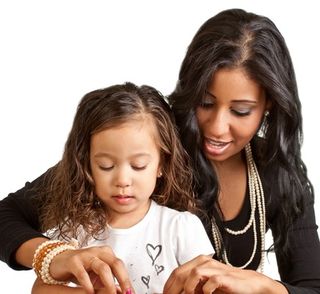Parenting
Overprotective Parenting and Symbolic Rejection
Helicopter parenting produces children who are unprepared for life.
Posted November 30, 2016

Helicoptering your child will likely increase your life satisfaction, because it makes the loss of personal autonomy that can come along with parenting dissipate to some extent. When you helicopter-parent your child, you live vicariously through your child.
The problem with helicoptering is that, like being physically absent as a parent, being hyper-present can harm children. Over-parenting generates a sense that the child cannot accomplish things on her own. She does not learn independence or the ability to deal with ordinary activities. Instead she grows up to become a dependently attached teenager and adult.
Snow-ploughing furthermore teaches kids that when the world produces obstacles in your way, someone will magically remove them. There is no need to fight or struggle. There is no need to make a difference in the world, because there aren’t really any lasting problems. Magically someone clears the way.
Psychologists Holly Schiffrin and colleagues from the University of Mary Washington looked at how helicoptering affects the self-determination and well-being of college students. 297 American undergraduate students, aged eighteen to twenty-three, were asked to describe their mothers' parenting behaviors as well as rate their own autonomy and competence, how well they get along with other people, their level of anxiety and depression and their overall satisfaction with life.
Helicoptering was found to correlate with higher levels of anxiety and depression and decreased life satisfaction as well as lower levels of perceived autonomy, competence, and ability to get along with others.
Two studies of college students appearing in the December 2010 online issue of Journal of Personality found that the current generation of young adults with helicopter parents have become so addicted to affirmation that they prefer moments that boost self esteem to having sex, eating sweets and drinking.
This should hardly come as a surprise. These kids have been showered with affection. But not unconditional affection. The affection served a purpose: to help the little pearls achieve worldly success. It’s merit-based. As David Brooks from Houston Chronicles puts it: “Parents glow with extra fervor when their child studies hard, practices hard, wins first place, gets into a prestigious college.”
Children can experience a lack of love and care even when there are no obvious explicit indicators that parents are cold, aggressive or neglecting. Many over-involved parents use expressions of love and affection as a parenting tool. This is also known as symbolic rejection, often expressed verbally in the form of implicit potential punitive measures or encouragement: “I don’t love you when you throw a hissy fit like this,” “I love you, especially when you behave as nicely as you did tonight,” “You received an A in Spanish! I love you so much.” Children and adolescents hear these avowals of “love” as declarations of a lack of real love for them for who they are—the kind of love that is meant to be oblivious to achievement and good behavior. From the youngsters’ point of view, the best they can hope for on the love front is transient love, meritocratic love, low-tariff love that must be earned.
There are folks who deny the data showing that helicopter parenting can cause serious problems for the child later on. C. Lee and Khris Reed, who are the authors of the blog Helicopter Mom and Just Plane Dad: Tales from the Not-So-Dark-side of Parenting openly report that they are extremely overprotective. Lee, the mom, knows, every second, where her daughter is and who she’s with. The parents also monitor every bit of the technology their daughter is using. They have all her passwords, so they can log into her accounts and see who she writes to and what she writes. Not unlike the 2014 American ensemble comedy-drama Men, Women & Children, in which Brandy’s online activity is continually monitored by her overprotective mother Patricia.
But helicoptering doesn’t just hurt the children. It eventually hurts the parents as well. For helicopter parents, the life satisfaction of parenting gradually decreases the older the children get. As New York Times contributor Madeline Levine puts it, “With my youngest son about to graduate from college, I find myself increasingly unhinged from that most fundamental view of myself.” She reports being “blindsided by a sense of loss as [her] sons move fully into lives of their own.”
The helicopter parent slowly realizes that the lives of her children is separate from her own. Levine says that she felt it gradually with each new achievement her children accomplished, “from zipping a jacket to hanging out at the mall to driving a car — [it] meant not only that my sons were more capable, but also that I was less necessary.”
Over-parenting might turn kids into Harvard material. But their advantage educationally comes at a steep price. The products of helicopters and snowploughs are unprepared for life. They develop a dependent personality, texting their parents to earn support in spite of a bad grade or even just to make a decision about what to eat for breakfast.
Berit "Brit" Brogaard is a co-author of The Superhuman Mind and the author of On Romantic Love.

References
Bushman, BJ, Moeller, SJ and Crocker, J. Sweets, Sex, or Self-Esteem? Comparing the Value of Self-Esteem Boosts with Other Pleasant Rewards, Journal of Personality. DOI: 10.1111/j.1467-6494.2010.00712.
Schiffrin HH, Liss M, Miles-McLean H, Geary KA, Erchull MJ, Tashner T (2014). “Helping or Hovering? The Effects of Helicopter Parenting on College Students’ Well-Being”, Journal of Child and Family Studies 23, 3: 548-557.




